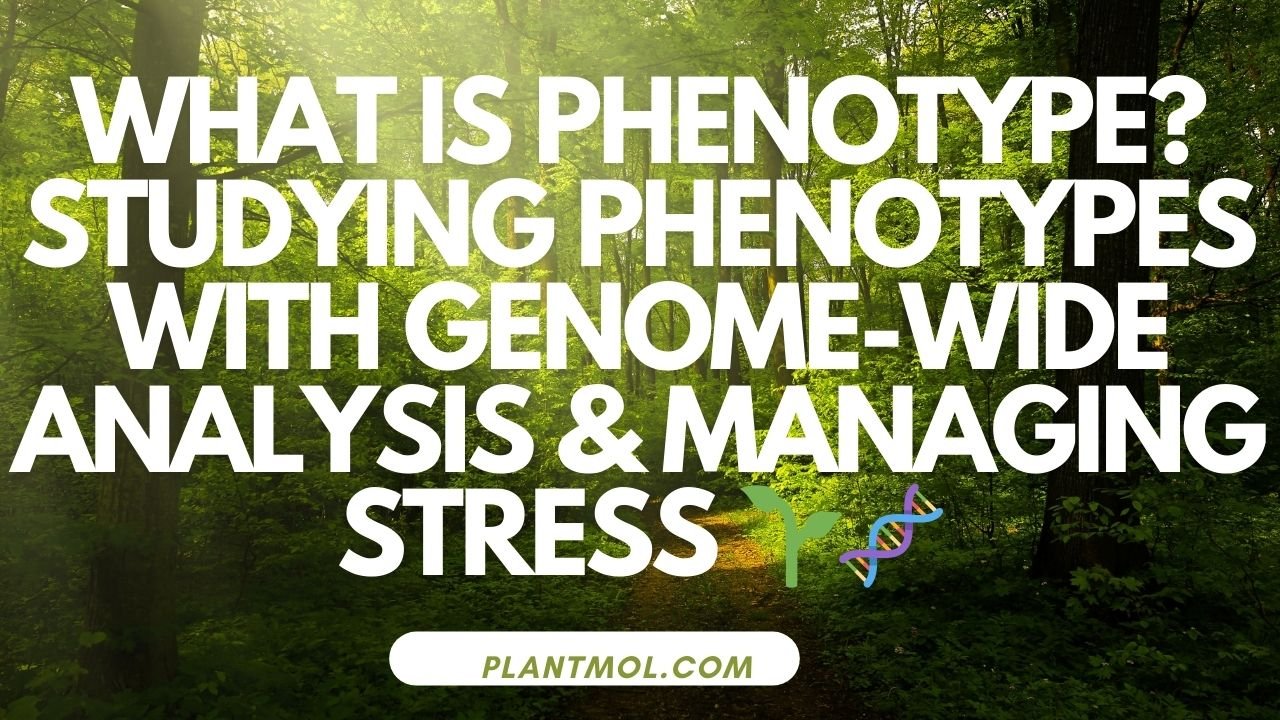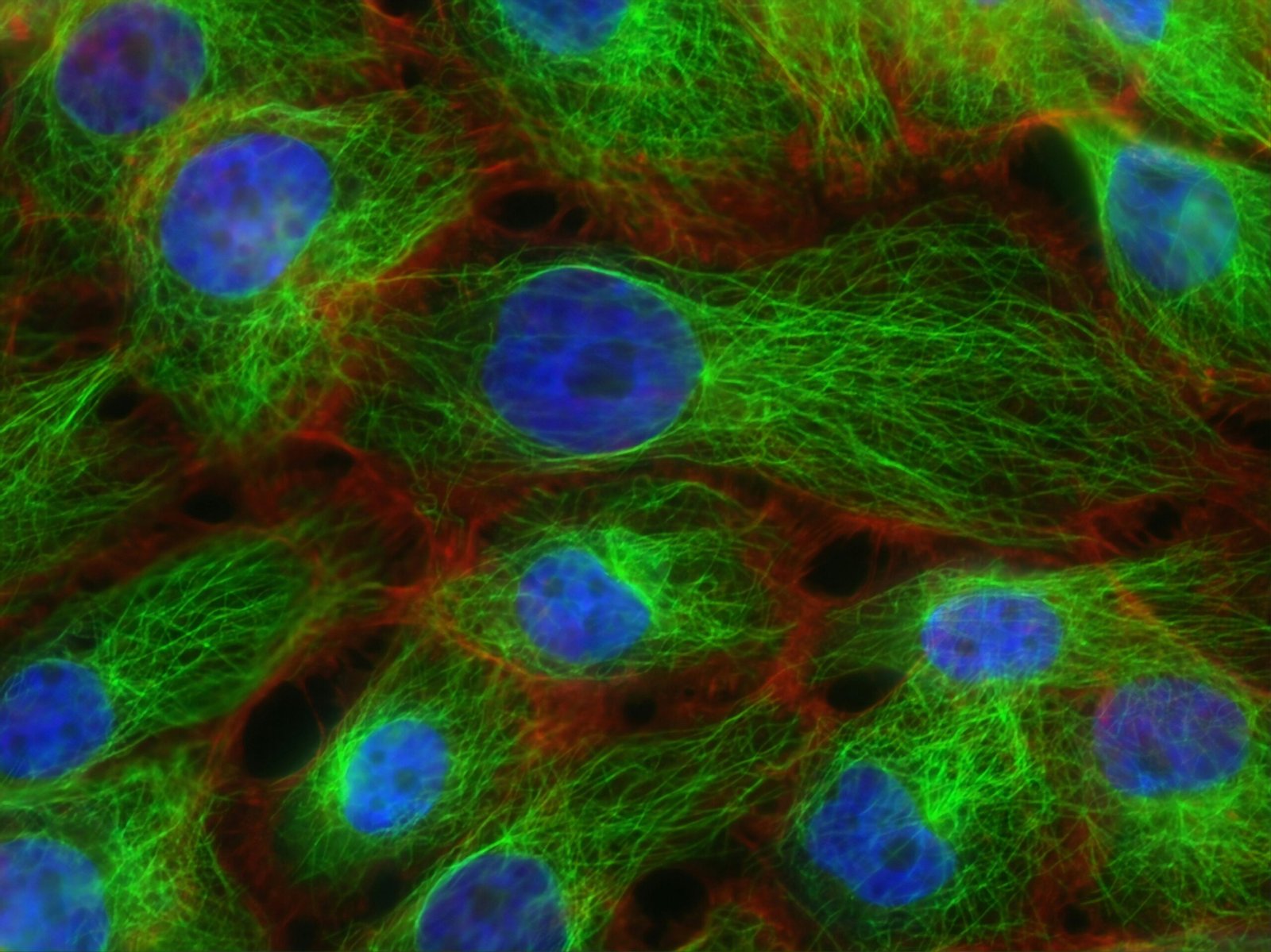Defining Phenotypes
Phenotypes are an essential concept in genetics, representing the observable physical and physiological traits of an organism. Numerous attributes, including morphology, development, biochemical characteristics, and behavior, can be included in this category. As opposed to genotypes, which describe an organism’s genetic composition, phenotypes are impacted by both environmental and genetic influences. Understanding how features manifest and differ within a species depends on this differentiation.
Phenotypic parameters can be easily observed and measured, making them pivotal in agriculture, medicine, and evolutionary biology field. For example, in plants, phenotypes (epigenetics) can include leaf shape, flower color, and fruit size. These characteristics are often the result of complex interactions between genetic predisposition and environmental influences, such as soil quality, sunlight, and water availability. In animals, phenotypic traits might encompass fur patterns, size, and behavior, which can be significantly shaped by factors such as habitat and social environment.
Ultimately, understanding phenotypes is crucial for studying biodiversity, evolution, and the inheritance of traits. By exploring how phenotypes arise and vary, scientists can glean valuable insights into the mechanisms behind both individual variation and species adaptation, highlighting the dynamic interplay between genetics and the environment.
The Importance of Studying Phenotypes
Phenotypes, the observable characteristics or traits of an organism, are fundamental to our understanding of biology and genetics. Studying phenotypes is essential as it elucidates the relationship between genetic variation and the expression of traits. This link is pivotal in several fields, including agriculture, medicine, and evolutionary biology. In agriculture, for instance, recognizing the phenotypic traits of plants can lead more resilient crop varieties. These enhanced varieties may exhibit improved yield, disease resistance, and adaptation to environmental stressors, thereby securing food sources in a rapidly changing climate.
Moreover, the study of phenotypes extends into evolutionary biology, assisting scientists in understanding how organisms adapt to their environments over time. By analyzing phenotypic variations within populations, researchers can infer patterns of natural selection and evolutionary pressures that shape biodiversity. Understanding these traits provides critical insights into the ecological dynamics of populations and their evolutionary trajectories.
Finally, in practical applications such as breeding programs, phenotypic assessments help in selecting individuals that carry desirable traits for reproduction. This selective breeding can lead to enhanced species and populations that exhibit specific, advantageous traits, ultimately benefiting both agriculture and conservation efforts. Through a comprehensive understanding of phenotypes, researchers and practitioners alike can make significant advancements across various domains.
Unlocking Secrets: Genome-Wide Analysis of Gene Family and Plant Phenotypes
Genome-wide analysis plays a crucial role in the field of genetics, particularly in understanding the intricate relationships between gene families and various plant phenotypes. By leveraging advanced genomic techniques, researchers can explore the genetic makeup of plants, uncovering the influence of specific genes on their traits and characteristics.
The Intersection of Gene Families and Plant Traits
Gene families consist of groups of related genes that often exhibit functional similarities. By studying these families, scientists can determine how genetic variations lead to observable traits in plants. For instance, certain gene families are associated with adaptations to environmental stresses, influencing plant growth, resilience, and yield. This comprehensive understanding aids in the breeding of plants with desirable qualities.
The Impact on Agricultural Practices
Genome-wide analysis not only enhances our knowledge of plant genetics and DNA but also has significant implications for horticultural practices. By identifying specific gene families linked to improved traits, breeders can develop crops that are better suited for varied climates and soil types. Such innovations are essential for meeting the food demands of a growing global population.
In summary, the integration of genome-wide analysis with the study of gene families and plant phenotypes is pivotal for advancing agricultural science. This research not only enriches our understanding of genetics but also paves the way for sustainable farming solutions. The future of agriculture hinges on the insights gained through these methods, making it a crucial area of study for scientists and farmers alike.
Future Directions in Phenotype Research
Phenotype research is poised to experience significant advancements, driven by emerging technologies such as CRISPR and machine learning. CRISPR, a powerful tool for genome editing, allows researchers to manipulate specific genes with precision. This capability opens new avenues for understanding how genetic variations influence phenotypic outcomes. By directly modifying genes, scientists can observe resulting changes in phenotypes, thereby illuminating the relationships between genotype and phenotype at an unprecedented scale.
In parallel, machine learning is transforming data analysis in phenotype studies. With the ability to process vast amounts of biological data, machine learning algorithms can uncover patterns and correlations that may elude traditional analytical methods. These technologies can be particularly effective in linking phenomic data, which encompasses observable traits, with genomic data, highlighting the complex interplay between genes and traits. The integration of such diversified datasets is crucial for unraveling the genetic underpinnings of complex traits, paving the way for personalized medicine and tailored therapeutic interventions.
Despite the promise of these advancements, it is essential to consider the ethical implications of incorporating such technologies into phenotype research. Issues surrounding genetic privacy, bioethics, and the potential for unintended consequences necessitate careful deliberation and governance. Ensuring responsible conduct in research is imperative as we explore the genetic basis of phenotypes and their application in various fields, from agriculture to medicine.
To fully harness the potential of these technologies and address ethical concerns, interdisciplinary collaboration will be vital. Bringing together geneticists, bioinformaticians, ethicists, and other specialists will promote a holistic approach to phenotype research, fostering innovation and responsible application. This collaborative framework will not only enhance our understanding of phenotypes but also facilitate advancements that are considerate of societal impacts. By embracing these future directions, phenotype research can contribute significantly to the scientific landscape and societal well-being.





